Ke-Xin Li
Channel Estimation for LEO Satellite Massive MIMO OFDM Communications
Jul 25, 2022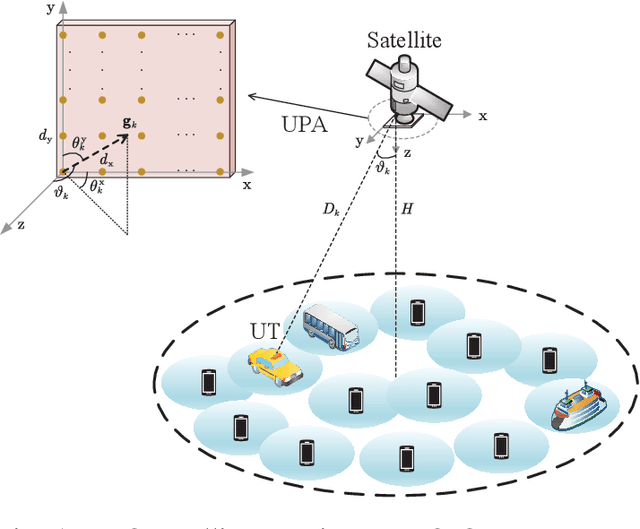
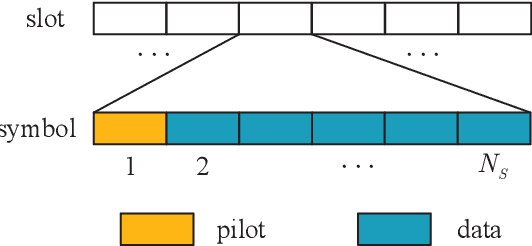
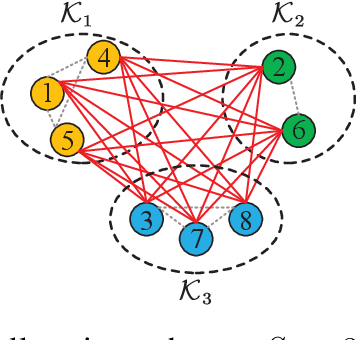
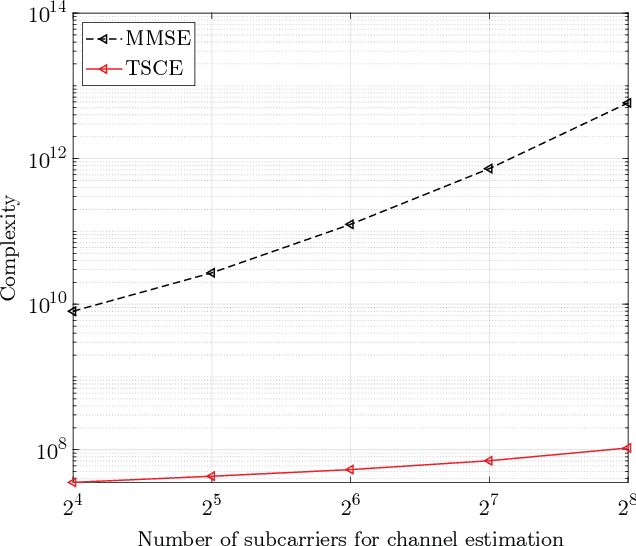
Abstract:In this paper, we investigate the massive multiple-input multiple-output orthogonal frequency division multiplexing channel estimation for low-earth-orbit satellite communication systems. First, we use the angle-delay domain channel to characterize the space-frequency domain channel. Then, we show that the asymptotic minimum mean square error (MMSE) of the channel estimation can be minimized if the array response vectors of the user terminals (UTs) that use the same pilot are orthogonal. Inspired by this, we design an efficient graph-based pilot allocation strategy to enhance the channel estimation performance. To reduce the computational complexity, we devise a novel two-stage channel estimation (TSCE) approach, in which the received signals at the satellite are manipulated with per-subcarrier space domain processing followed by per-user frequency domain processing. Moreover, the space domain processing of each UT is shown to be identical for all the subcarriers, and an asymptotically optimal vector for the per-subcarrier space domain linear processing is derived. The frequency domain processing can be efficiently implemented by means of the fast Toeplitz system solver. Simulation results show that the proposed TSCE approach can achieve a near performance to the MMSE estimation with much lower complexity.
Massive MIMO Hybrid Precoding for LEO Satellite Communications With Twin-Resolution Phase Shifters and Nonlinear Power Amplifiers
Jun 09, 2022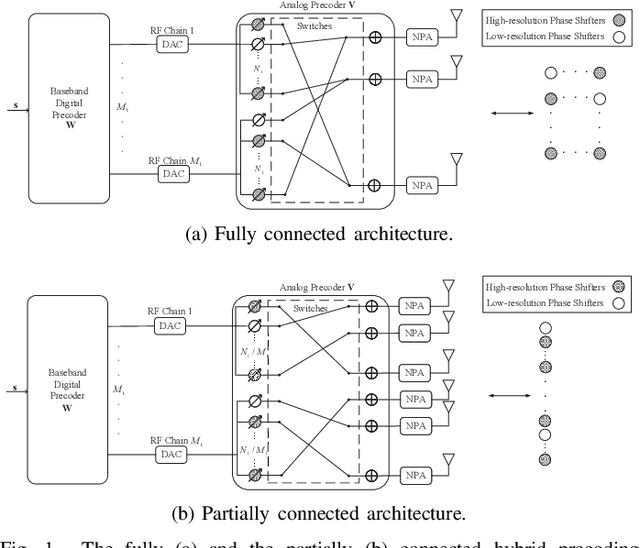
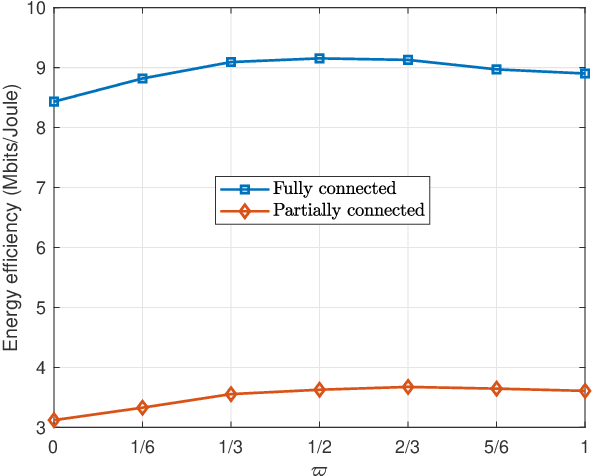
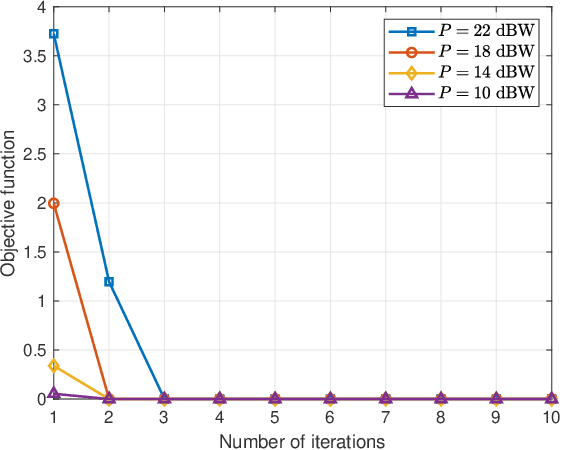
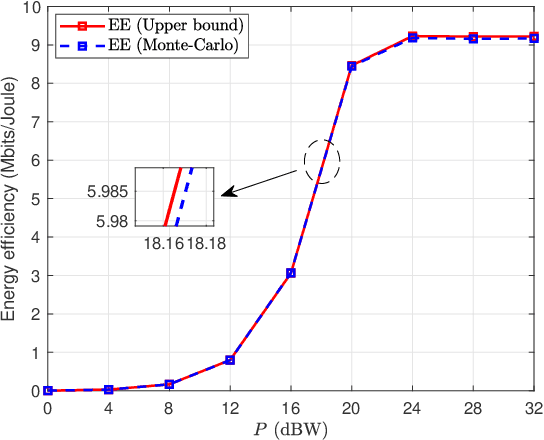
Abstract:The massive multiple-input multiple-output (MIMO) transmission technology has recently attracted much attention in the non-geostationary, e.g., low earth orbit (LEO) satellite communication (SATCOM) systems since it can significantly improve the energy efficiency (EE) and spectral efficiency. In this work, we develop a hybrid analog/digital precoding technique in the massive MIMO LEO SATCOM downlink, which reduces the onboard hardware complexity and power consumption. In the proposed scheme, the analog precoder is implemented via a more practical twin-resolution phase shifting (TRPS) network to make a meticulous tradeoff between the power consumption and array gain. In addition, we consider and study the impact of the distortion effect of the nonlinear power amplifiers (NPAs) in the system design. By jointly considering all the above factors, we propose an efficient algorithmic approach for the TRPS-based hybrid precoding problem with NPAs. Numerical results show the EE gains considering the nonlinear distortion and the performance superiority of the proposed TRPS-based hybrid precoding scheme over the baselines.
Hybrid Analog/Digital Precoding for Downlink Massive MIMO LEO Satellite Communications
Jan 17, 2022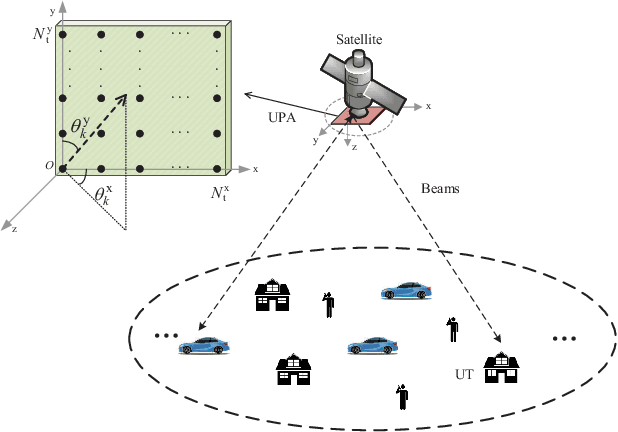
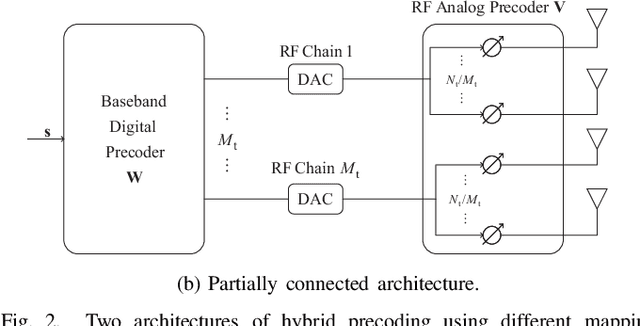
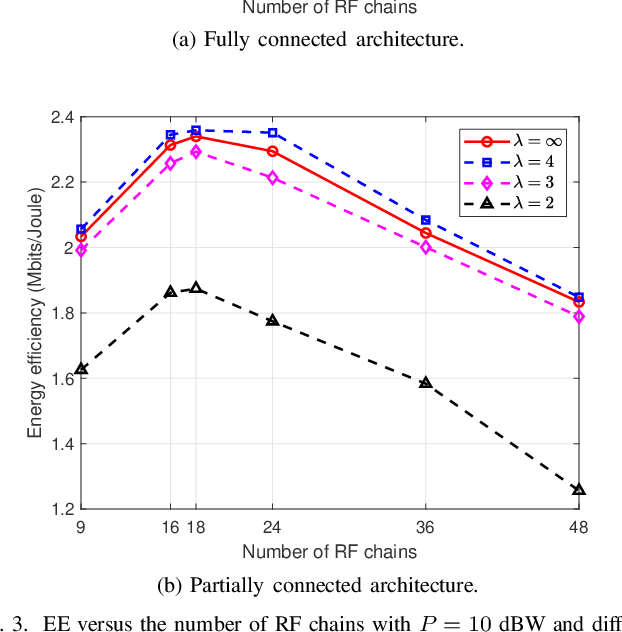
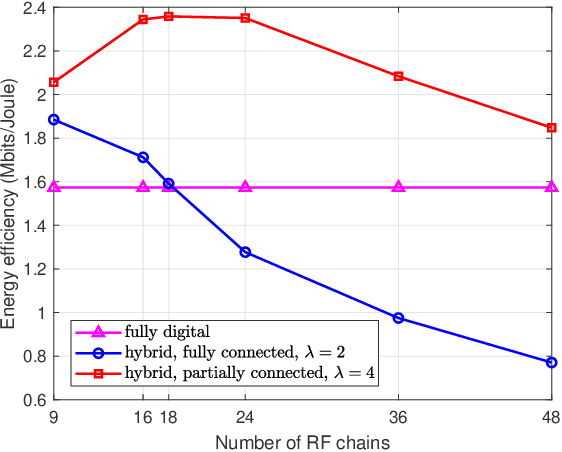
Abstract:Massive multiple-input multiple-output (MIMO) is promising for low earth orbit (LEO) satellite communications due to the potential in enhancing the spectral efficiency. However, the conventional fully digital precoding architectures might lead to high implementation complexity and energy consumption. In this paper, hybrid analog/digital precoding solutions are developed for the downlink operation in LEO massive MIMO satellite communications, by exploiting the slow-varying statistical channel state information (CSI) at the transmitter. First, we formulate the hybrid precoder design as an energy efficiency (EE) maximization problem by considering both the continuous and discrete phase shift networks for implementing the analog precoder. The cases of both the fully and the partially connected architectures are considered. Since the EE optimization problem is nonconvex, it is in general difficult to solve. To make the EE maximization problem tractable, we apply a closed-form tight upper bound to approximate the ergodic rate. Then, we develop an efficient algorithm to obtain the fully digital precoders. Based on which, we further develop two different efficient algorithmic solutions to compute the hybrid precoders for the fully and the partially connected architectures, respectively. Simulation results show that the proposed approaches achieve significant EE performance gains over the existing baselines, especially when the discrete phase shift network is employed for analog precoding.
 Add to Chrome
Add to Chrome Add to Firefox
Add to Firefox Add to Edge
Add to Edge